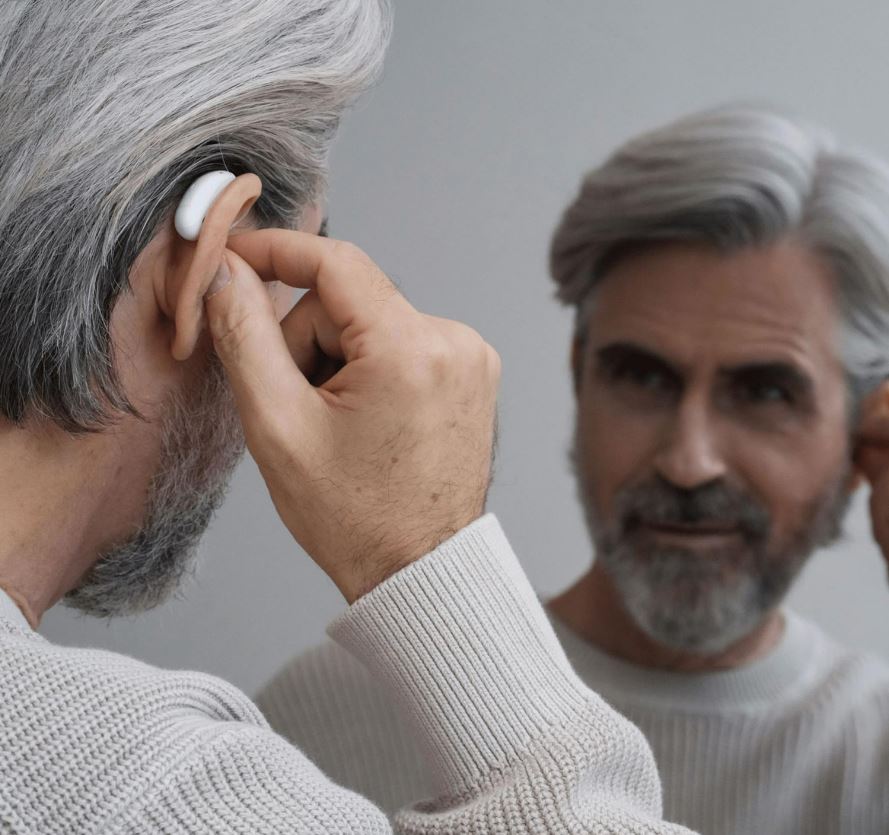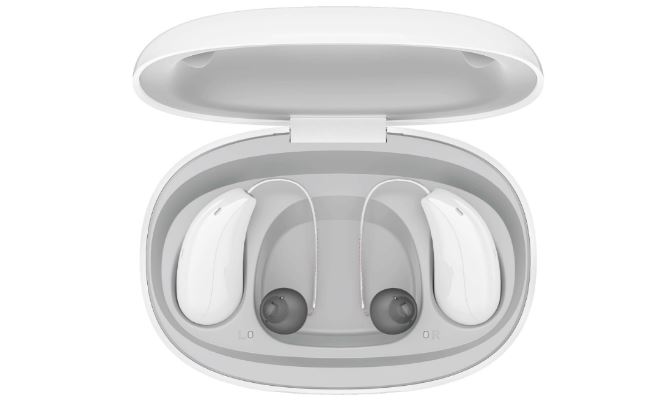By Xinke Liu, Co-Founder of Orka
In 2022, The Food and Drug Administration ruled hearing aids could be sold over the counter without a prescription to adults. Since this ruling, it has caused many hearing aid companies to rethink their go-to-market strategy and the distinction between over-the-counter (OTC) and prescription hearing aids has never been more pronounced.
As a co-founder of Orka, a company at the forefront of hearing aid innovation, I’ve witnessed firsthand the challenges and opportunities within this sector and the growing need for companies to continue pioneering solutions that cater to the diverse needs of those with hearing impairments.
Understanding the Hearing Aid Landscape: OTC, Prescription and Hybrid
 The hearing aid industry has traditionally been bifurcated into two categories: prescription hearing aids and OTC devices. Prescription aids, often customized and fitted by audiologists, offer high levels of personalization but can be prohibitively expensive due to the bundling of services with high cost devices.
The hearing aid industry has traditionally been bifurcated into two categories: prescription hearing aids and OTC devices. Prescription aids, often customized and fitted by audiologists, offer high levels of personalization but can be prohibitively expensive due to the bundling of services with high cost devices.
On the other hand, OTC hearing aids typically provide a more cost-effective and easily accessible solution, but often lack the customization and technology necessary for optimal hearing support.
Since the FDA ruling, a hybrid approach that merges OTC with virtual audiologist support has emerged. The terms OTC, prescription and hybrid hearing aids refer to different methods of acquiring hearing aids, each with its own set of regulations, accessibility and intended user base.
Here’s a breakdown of their differences:
OTC (Over-the-Counter) Hearing Aids:
OTC hearing aids are available for purchase directly from stores or pharmacies without the need for a prescription. They are more accessible than prescription aids.
-
- These devices are regulated but to a lesser extent than prescription hearing aids. In some regions, such as the United States, recent changes in legislation have aimed to make OTC hearing aids more widely available.
- Like DTC aids, they are generally intended for adults with mild to moderate hearing loss.
- OTC hearing aids offer some level of customization, but it’s typically less than what is available with prescription models. They might include adjustable settings for volume and environment.
- No professional fitting is required, although some manufacturers may offer guidance or online support.
Prescription Hearing Aids:
Prescription hearing aids are available through licensed hearing professionals, such as audiologists. A prescription is required after a comprehensive hearing evaluation.
-
- These aids are highly regulated for quality and safety. They must meet stringent standards set by health authorities.
- They cater to a wide range of hearing impairments, from mild to profound loss. They are particularly beneficial for complex or severe cases.
- Prescription hearing aids offer the highest level of customization. They are tailored to the individual’s specific hearing profile, lifestyle needs, and preferences.
- The process involves a professional hearing test, personalized fitting, and follow-up adjustments. Ongoing support and maintenance are typically provided.
In summary, OTC hearing aids offer more accessibility and convenience, often at a lower cost, but with less customization and professional support. Prescription hearing aids, while less accessible and often more expensive, provide a high degree of personalization and professional care, making them suitable for a broader range of hearing impairments.
The issue with the hearing aid sector is the abundance of terms—OTC, hybrid and prescription. These are overly complicated for consumers. Manufacturers may benefit from maintaining these distinctions and a highly segmented industry.

Introducing a Hybrid Approach
At Orka, we’ve analyzed consumer needs and government regulations closely and have taken a revolutionary step in hearing aid technology. It’s a hybrid solution, designed to bridge the gap between the accessibility of OTC devices and the bespoke customization of prescription models. This innovative device leverages cutting-edge technology to offer users a personalized hearing experience without sacrificing the convenience and affordability of an OTC model.
Why a hybrid approach? The pivot towards a hybrid model is not arbitrary. It’s a response to the evident limitations of fully self-fit OTC devices. A glaring issue with many OTC options is their high return rates, signaling user dissatisfaction. Our research indicates that expert guidance in fitting and customizing hearing aids is invaluable – a fact often underestimated outside the industry.
Comparative data paints a clear picture: hybrid models like the Orka Two have significantly lower return rates compared to purely OTC models.

This is corroborated by feedback from hearing health professionals, who have observed enhanced user satisfaction with hybrid solutions. These findings validate our belief that the hybrid approach that combines technological innovation and consumer ease with expert oversight is a solid alternative to the OTC and prescription conundrum.
The Future of Hearing Aid Technology
In the future, consumers shouldn’t have to worry about OTC, and the like. With our The introduction of the Orka Two is more than just the launch of a new product; it’s a glimpse into the future of hearing aid technology.
We envision a market where hybrid models become the norm, offering the perfect balance between accessibility, affordability, and technological sophistication. At Orka, we are committed to leading this transformation, ensuring that everyone has access to the hearing support they need.
About Orka
Founded in Silicon Valley in 2018, Orka is a multinational startup focused on innovative hearing technologies. As one of the first global tech companies to employ AI technology throughout the full lifecycle of hearing aids, Orka is dedicated to creating an integrated hearing aid system that combines hardware, AI algorithms, and services. By achieving precise separation of human voices and noise, developing smart hearing aids, and a remote fitting platform, Orka offers users efficient solutions for remote, fine-tuning hearing aids, and redefining hearing aid products and services. Since its inception, Orka has been devoted to breaking the technological limitations of traditional hearing aids. Through combining design and technology, Orka hopes to tackle the challenges of hearing loss in a smart and economical way, making healthcare more personable and convenient. Learn more at https://hiorka.com/AboutUs.






